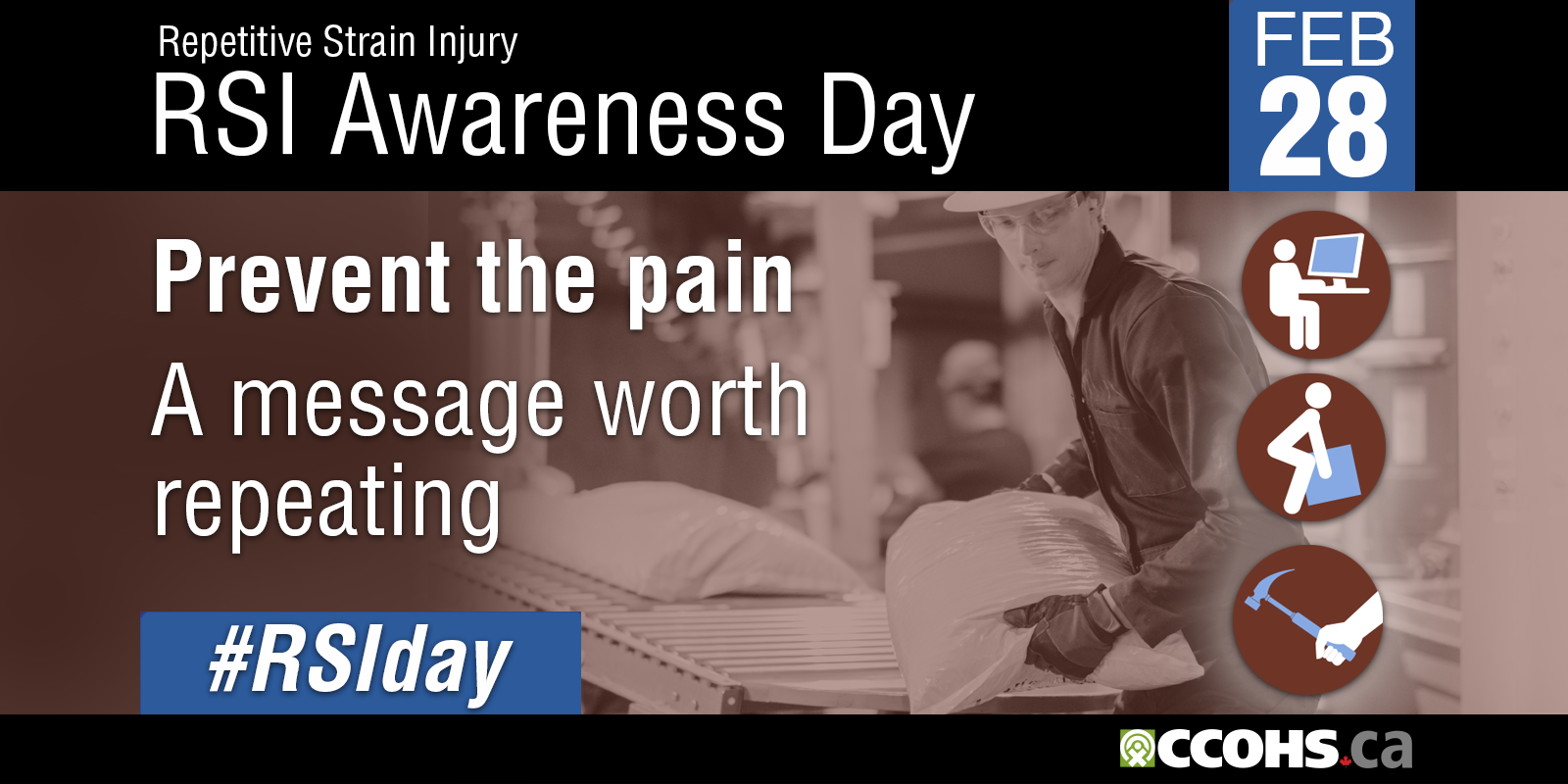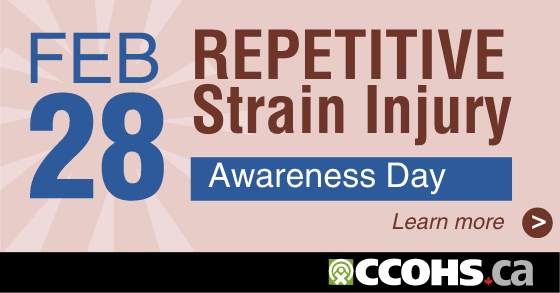International Repetitive Strain Injury (RSI) Awareness Day
#RSIday
Causes
Prevention
Raise awareness on social media
Share the following postcards on your favorite social media channel to help spread the word about repetitive strain injuries:
Raise awareness of RSI Day on your website








